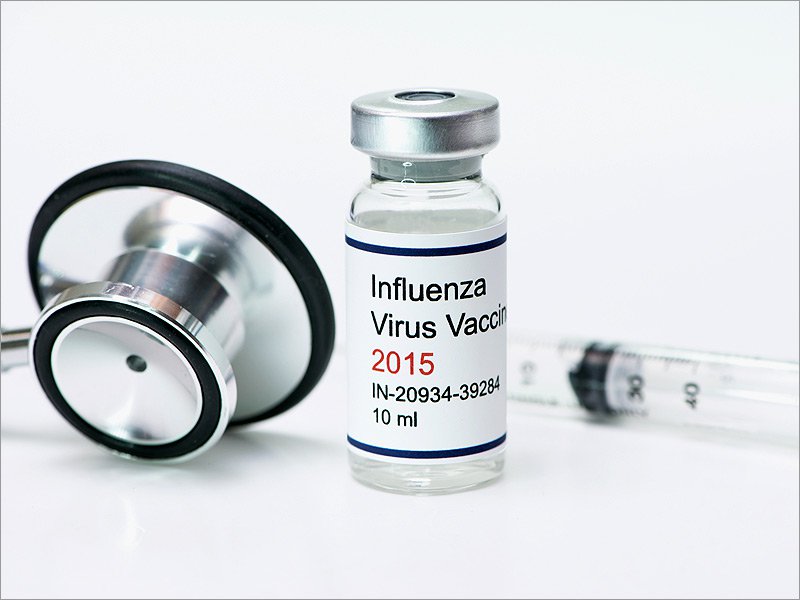Millions of people worldwide get influenza every year. Though influenza is relatively mild for most people, it may lead to hospitalisation or death in some of the more serious cases.
Fortunately, you can lower your risk of getting influenza by half, with an annual flu vaccine – which is widely considered as the best way to minimise your chances of getting the flu.

Millions of people get influenza every year.
I did an email interview with Dr Derek Li, 36, a General Practitioner with the Raffles Medical Group in Singapore, to find out more about the flu vaccine, how it works and his thoughts and comments on its importance.
Said Dr Li, “For the purposes of this interview, let’s first establish that Flu refers only to the Influenza virus family because there are thousands of viruses that can cause flu-like symptoms and the Flu vaccine does not protect against these others. Textbook influenza causes fever, severe fatigue and joint aches, and dry cough.”
He continued, “Influenza spreads through aerosolised droplets in the air, for example, coughing and sneezing. But it is not an airborne infection and you cannot catch it, or any other flu-like virus, from being drenched in the rain.”
Generally Dr Li advises that it is mandatory for certain groups of people to get a flu vaccine. These are persons over 65 years old, young children aged between 6 to 59 months, pregnant women and persons with chronic medical conditions such as heart disease, lung conditions like asthma, diabetes, kidney or liver impairment.

Dr Derek Li.
He said, “These are considered people who are at high risk of suffering complications from an influenza infection.”
Continued the doctor, “While it is optional for everyone else, I think getting it done annually is a very good idea. It is generally very cheap, at less than $30, very safe and relatively painless. As someone who works in healthcare, my employer ensures that I get mine done every year.”
“But generally though, most healthy people who contract Influenza do not get very sick or end up in hospital,” the doctor added.
He recommends that the average person should get the vaccine as soon as a new version appears. Explained Dr Li, “That is around April or October each year, or preferably before you have to go overseas.”
How does the flu vaccine work to reduce the risk of getting influenza, anyway? Said Dr Li, “Proteins and DNA from the most recent Flu outbreaks are taken and grown in chicken eggs to create a mimic of the virus. When this is injected into the body, it teaches the body to generate antibodies to this version of the Flu virus so that when it attacks you, you can fight it of without getting sick.”
While the doctor added that it is impossible to fall sick with Influenza after having the vaccine, you can still fall sick with other mutant variations of the illness. Said Dr Li, “It is very unlikely to contract the Influenza virus after vaccination but it is possible that a new mutant variant of the Influenza virus may appear and make you sick.”
He added, “The Flu Vaccine does not protect you against all flu-like viruses, only Influenza, so your chances of picking up a common cold are still there.”
In fact, Dr Li pointed out that this is one of the most common misconceptions of the Flu vaccine. He said, “People often think they won’t get a cough or runny nose anymore after getting the vaccine. Or they confuse it with the Pneumococcal vaccine, which protects against a different bacterial infection that commonly causes lung infections.”
From the time that you are injected with the vaccine, it takes two weeks to take effect. So within those two weeks of incubation, the doctor pointed out that you are still susceptible to getting Influenza.
He continued, “Also, you must also note that the vaccine validity is generally one year, because Influenza mutates so often that the vaccines can become obsolete within 12 months.”
However though, there are some groups of people who Dr Li points out, should stay well away from getting the Flu vaccine.

Certain groups of people should not get a flu vaccine.
Said Dr Li, “The vaccine is made from chicken eggs, so people with chicken egg allergies generally cannot take the Flu vaccine, though it may be possible to get a version of the vaccine that does not contain egg proteins.”
He added, “But generally, I would advise you not to do it if you have egg allergies, had a previous bad reaction to the Influenza vaccine or if you have an ongoing fever for any reason. Any ongoing fever can interfere with the efficacy of the vaccine.”
Continued Dr Li, “And people with weakened immune systems should consult their doctor before considering the vaccine, too.”
And for endurance athletes such as marathoners and triathletes, Dr Li pointed out that this group is most susceptible to contracting Influenza when they are undergoing heavy training. That would typically be during the peak training periods, that is, roughly a month away from a key race.
Said the doctor, who is also a marathoner and triathlete himself, “We are most susceptible when we are undergoing very heavy training, as this is when our stress hormones are very high and makes us most susceptible to infections.”
He added, “But to minimise the chances of getting Influenza during these times, do not compromise on sleep. The harder you train, the harder you must sleep. Getting a balanced diet with lots of fruits and vegetables also helps to ensure that your body recovers better and that, in turn, keeps your immune system strong.”

Get a good night’s sleep to keep your chances of getting flu down.
Of course, and getting the flu vaccine during this time period, will also minimise your chances of falling sick and thus affecting on your pre-race preparations as a result.
In fact, by following his own tips, Dr Li himself has not had to take an MC for more than two years, in spite of his line of work. He said, “Case in point, I get a fever maybe once a year. The last time I had to take an MC was two and a half years ago, and that was for a bicycle crash during a triathlon.”
He continued, “And I see sick people up close all day long, and I don’t wear a mask.’

Leave a Comment